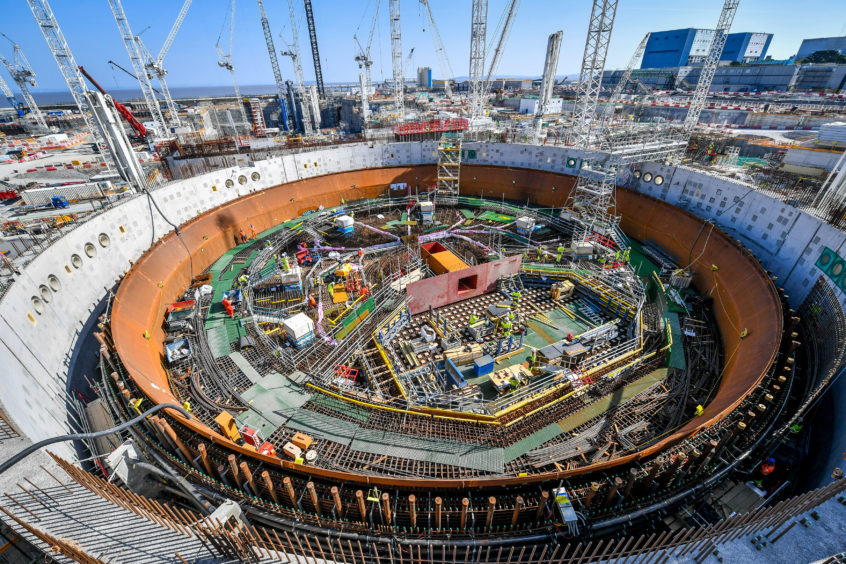
Electricite de France SA said the completion of its flagship British nuclear plant project will be delayed at least six months and cost about 500 million pounds ($687 million) more than previously planned because of the coronavirus pandemic.
While the delay announced Wednesday is short at this stage, it’s likely to revive controversy about how expensive the technology is and whether further holdups are inevitable. EDF is already struggling to finish a French reactor more than a decade behind schedule.
“We are still facing the full force of the pandemic,” Hinkley Point C Managing Director Stuart Crooks said. “This means we have not been able to bring on the extra people needed to catch up on work we postponed at the height of the crisis.”
The French state-controlled utility warned last year that such risks had risen as Covid-19 slowed construction of the two reactors it’s building with its Chinese partner at Hinkley Point in Southwest England.
EDF had planned to make up key milestones missed in 2020 by the end of this year but continued social distancing requirements have limited the number of workers allowed on site.
The project completion cost at Hinkley Point C is now estimated at 22 billion to 23 billion pounds, half a billion more than estimated in 2019, EDF said in a statement Wednesday. The first reactor will begin producing power in June 2026, compared with end-2025 as initially announced in 2016, it said.
The six-month delay is dependent on being able to begin to ramp up back to normal site conditions from July, EDF said.
EDF fell 3.2% to 10.40 euros by 11:20 a.m. in Paris. The utility will have to shoulder the extra costs and won’t be paid any money from the U.K. government until the project is finished and electricity is being produced.
Nuclear doesn’t have a good track record for finishing on time. EDF is struggling to finish a reactor at Flamanville, which is delayed by more than 10 years, leading France to put further new projects on hold.
“Not great news, though given the Covid-19 crisis and the very poor project evolution at Flamanville this is a fairly benign update,” JPMorgan Chase & Co. analysts said in a note, referring to EDF’s delayed nuclear project in France.
Delivering Hinkley Point C without huge delays is important for both EDF and U.K. policymakers who are relying on power from the reactor to plug a supply gap that’s emerging as older reactors shut.
The utility is in talks with the government about financing a second project at Sizewell C. The government says the project needs to be cheaper than Hinkley Point C.
In a show of the importance of making a success of Hinkley, U.K. energy minister Kwasi Kwarteng gave his public backing to the project last week.
“I’m confident that if we do Hinkley Point C on time, which is looking likely, or if we miss it, it won’t be by very much, “ he said.
The U.K. is likely to need nuclear power as a source of low carbon electricity to meet its commitment to zero-out emissions by 2050.
Electricity use is set to double by then as heating and transport sectors electrify. The huge program of offshore wind the U.K. is planning to roll out within nine years will need back up for when the weather is calm.
The delay and cost overruns will trim EDF’s projected rate of return on the project. The French company reiterated that units 1 and 2 still face another potential delay of 15 and 9 months, respectively, which might result in additional costs of about 700 million pounds.
Recommended for you
